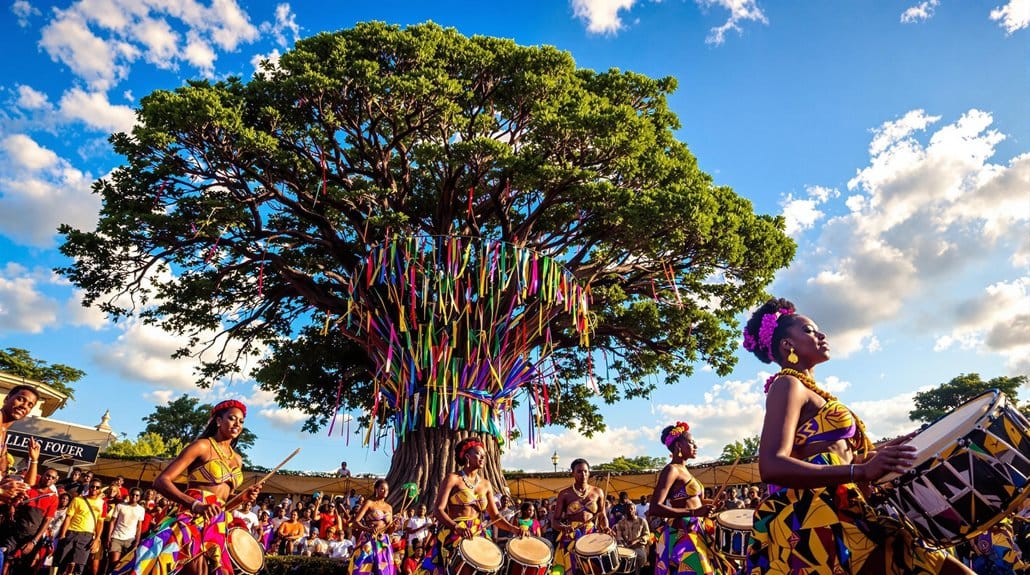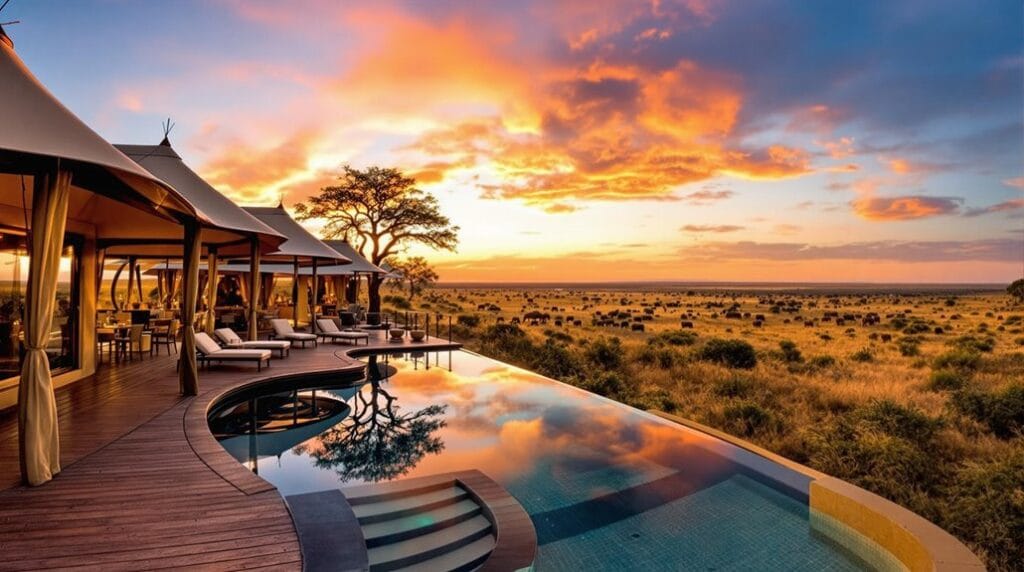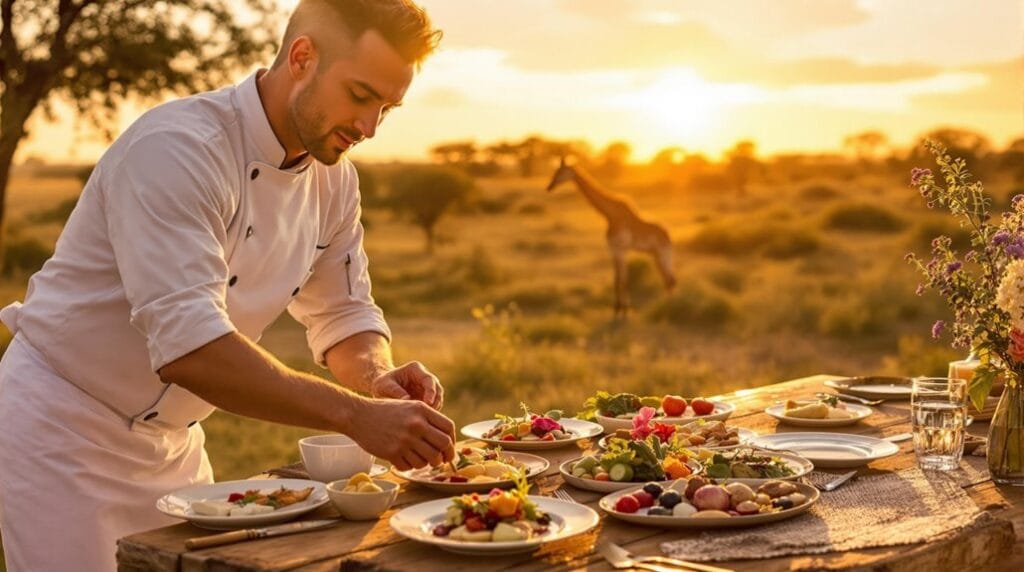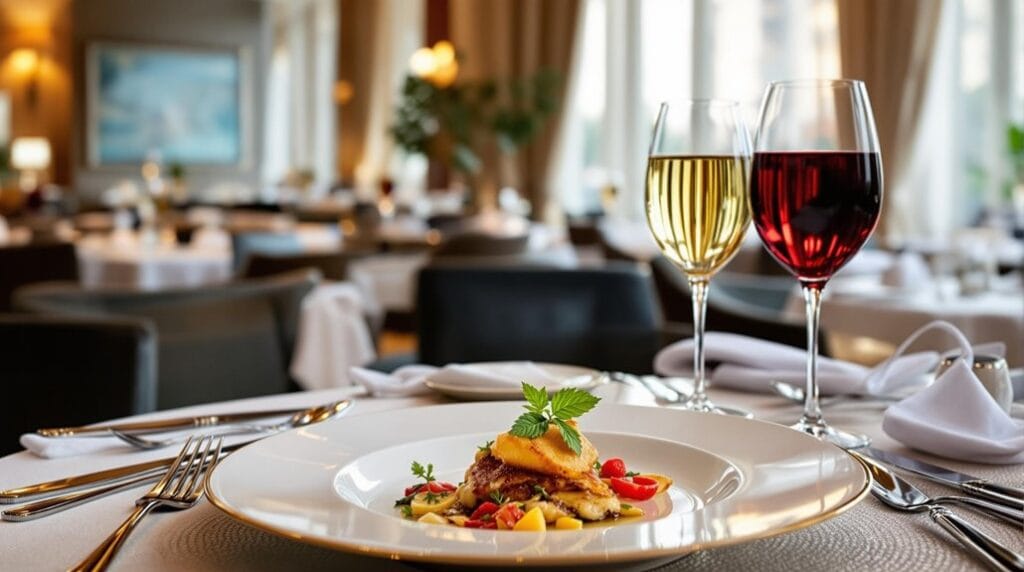Spiritual festivals across Africa immerse you in the rich tapestry of ancestral heritage. These gatherings connect communities, drawing participants into vibrant rituals that honor spirits and celebrate identity. Picture yourself at the Voodoo Festival in Benin, where elaborate ceremonies and traditional music echo through the air. You'll witness the communal spirit as people engage in dance and offerings, reinforcing cultural ties. Whether it's the Odun Ifa Festival emphasizing spirituality or the Zulu Reed Dance celebrating womanhood, each event revitalizes traditions. Explore these ceremonies further, and you'll find deeper connections to the heritage they cherish so deeply.
Key Takeaways
- Spiritual festivals like Voodoo and Odun Ifa honor ancestral connections, reinforcing cultural identity within African communities.
- Traditional music and dance during festivals foster a sense of belonging and community pride among participants.
- Ritual practices, such as offerings and communal ceremonies, celebrate and revive African traditions across generations.
- Pilgrimages to sacred sites and participation in rituals deepen spiritual connections to cultural roots and ancestral spirits.
- Global interest in these festivals enhances cultural pride and awareness, especially among the African diaspora.
Significance of Spiritual Festivals
As you step into the vibrant atmosphere of a spiritual festival, like the annual Voodoo Festival in Benin, you can't help but feel the pulse of ancestral connections coursing through the celebrations. Here, spiritual practices take center stage, with rituals that honor the spirits and ancestors who shape cultural identity within African communities.
The air is filled with the beat of traditional music, inviting you to move and feel the rhythm of generations. Each dance and song serves as a reminder of the rich cultural heritage that binds participants together, fostering a sense of belonging.
As you observe the elaborate rituals, you realize these festivals are essential for preserving and revitalizing African traditions, creating spaces for intergenerational transmission of knowledge and values.
Moreover, events like the Voodoo Festival attract both domestic and international visitors, drawing those from the African diaspora enthusiastic to reconnect with their roots. This exchange not only enriches local economies but also highlights the global interest in ancestral veneration.
Ultimately, spiritual festivals become a celebration of identity, weaving a tapestry of shared experiences that honor the past and inspire future generations.
Key Festivals Celebrating African Heritage
Key festivals celebrating African heritage serve as vibrant showcases of cultural identity and communal spirit.
These events not only honor spiritual beliefs but also strengthen community ties, allowing you to connect deeply with your roots.
- Voodoo Festival in Benin: Celebrating Voodoo deities, this annual event attracts about 12% of the nation's population, featuring elaborate rituals and performances.
- Odun Ifa Festival in Nigeria: This festival focuses on the Ifa divination system, emphasizing spirituality and cultural identity through traditional ceremonies and offerings.
- Kwanzaa: Celebrated by African Americans from December 26 to January 1, Kwanzaa highlights unity and cultural identity, fostering communal gatherings and educational events.
- Umkhosi Umhlanga (Reed Dance): This Zulu festival in South Africa honors womanhood and purity with traditional dances and rituals that promote cultural values.
- Gerewol Festival in Niger: The Wodaabe people celebrate beauty and courtship through vibrant costumes, singing, and dancing, reinforcing cultural identity and community bonds.
Each festival encapsulates traditional African cultural beliefs, inviting you to experience a diverse cultural heritage that enriches your sense of belonging.
Ancestral Connections and Ritual Practices
Ancestral connections form a cornerstone of African spiritual practices, weaving a rich tapestry of cultural identity and communal life. You'll find that many African communities view their ancestors as essential intermediaries, guiding daily decisions and influencing the spiritual atmosphere.
In Vodou ceremonies, for instance, offerings at home altars and public peristyles invoke ancestral guidance, with music and dance creating an immersive spiritual connection.
When you participate in rituals at shrines or burial sites, you'll feel the energy of the ancestors channel through communal ceremonies, reinforcing bonds among participants and celebrating shared cultural significance. This practice isn't unique to Africa; you might notice parallels in traditions like Dia de los Muertos in Latin America, where similar beliefs and practices honor deceased relatives with altars and offerings.
In Benin, the annual Voodoo Festival showcases the cultural significance of Voodoo and ancestral worship, drawing community members together for elaborate rituals that honor their heritage.
Spiritual Journeys and Pilgrimages
Participating in rituals that honor ancestors naturally leads many to set forth on spiritual journeys and pilgrimages, where the quest for healing and guidance takes on a profound significance.
These journeys are more than mere travel; they're deep connections to cultural roots and ancestral spirits.
- Visiting sacred sites like shrines and temples
- Engaging in community rituals and offerings
- Seeking the wisdom of the Ifa divination system
- Participating in festivals like the Voodoo Festival in Benin
- Reflecting on personal experiences for spiritual growth
As you set forth on these spiritual journeys, you'll find yourself immersed in the rich tapestry of your heritage.
Each pilgrimage invites you to reflect, connect, and grow within a community that shares your values and beliefs.
The cultural significance of these experiences reinforces your identity, allowing you to honor ancestors while also fostering a sense of belonging.
The rituals and offerings you participate in not only seek the blessings of ancestral spirits but also deepen your personal spiritual growth.
Cultural Expressions Through Festivals
Festivals serve as vibrant expressions of cultural identity, bringing communities together to celebrate their heritage and spiritual beliefs. Take the Voodoo Festival in Benin, for instance. It draws around 12% of the local population and countless tourists, all enthusiastic to engage with the rich tapestry of traditions that honor ancestors believed to influence daily life.
As you witness the elaborate rituals in Ouidah, the air fills with the rhythm of drums, the energy of traditional dance, and the color of multi-colored costumes and masks. Each element serves as a powerful visual representation of spiritual beliefs, deeply rooted in the community's history.
The participation of local performers is essential, as they engage audiences, fostering a sense of unity and cultural exchange. In these moments, you can feel the connection to a shared heritage that transcends individual experience.
The growing global interest in these festivals highlights their significance, especially for diaspora communities seeking to reconnect with their roots. As you immerse yourself in these cultural expressions, you not only celebrate the past but also contribute to a living legacy that enhances cultural pride and awareness among all attendees.
Frequently Asked Questions
How to Honor African Ancestors?
To honor African ancestors, you can engage in meaningful ancestor rituals that foster family connections and cultural legacies.
Create a home altar adorned with photos and symbolic items, and offer spiritual offerings like food or flowers.
Participate in remembrance practices that involve storytelling and communal gatherings, allowing you to feel that profound sense of belonging.
What Is the Importance of Honoring Ancestors in Traditional African Religious Practices?
Honoring ancestors in traditional African religious practices is essential for fostering cultural continuity and a deep spiritual connection.
You participate in communal rituals that celebrate your historical legacy, reinforcing the bonds among generations.
Through ancestor veneration, you seek guidance and blessings, ensuring that the wisdom of those before you influences your decisions.
These practices not only preserve your unique identity but also strengthen community ties, creating a rich tapestry of shared experiences and values.
What Is the Ancestral Spirituality of Africa?
Did you know that over 70% of Africans actively participate in ancestral reverence through spiritual rituals? This practice holds immense cultural significance, as it connects you to your roots and community.
You'll find sacred symbols at gatherings, reminding everyone of shared histories. Through these rituals, you channel the wisdom of ancestors, fostering unity and belonging.
Engaging in these traditions not only honors the past but also strengthens bonds within your community today.
How Do Most Traditional African Religions Honor Their God?
Most traditional African religions honor their God through vibrant rituals and offerings, creating sacred spaces where you can feel a divine connection.
In community gatherings, the air buzzes with spiritual music, inviting you to participate in the worship. As you join others, you witness how rituals deepen your understanding of the divine, while symbols and sacred objects enhance your experience.
This collective practice strengthens your bond with the community and nourishes your spiritual journey.
Conclusion
In the grand tapestry of African heritage, spiritual festivals aren't just events; they're the lifeblood of communities, pulsating with vibrant colors and soul-stirring rhythms. They connect you to ancestors, wrapping you in a warm embrace of tradition and pride. Imagine dancing under the stars, feeling the heartbeat of a thousand generations. These festivals aren't merely celebrations; they're sacred journeys that elevate your spirit to celestial heights. So, immerse yourself and witness the magic—your soul will thank you for it!








